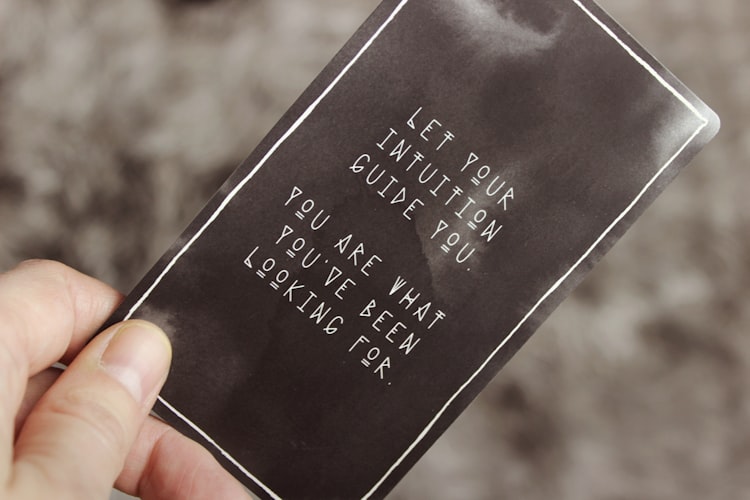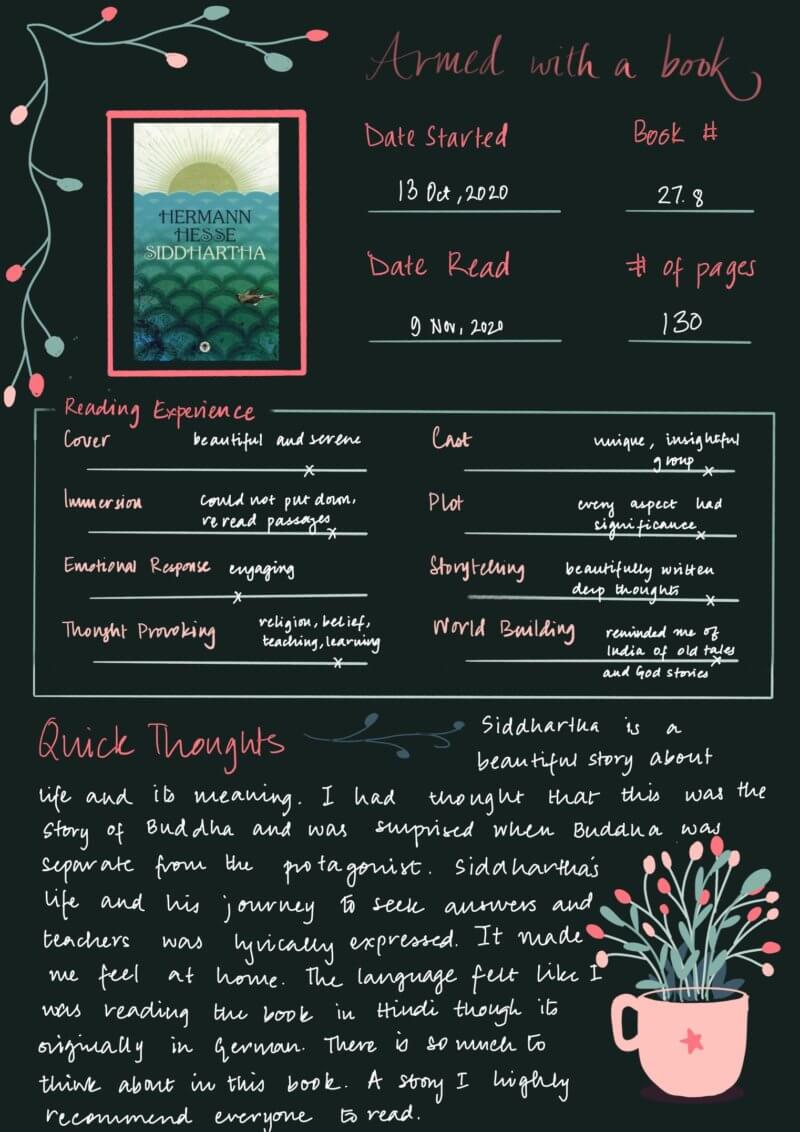How often do you pick up books set in the earlier eras in your home country? Growing up, I read lots of Hindu mythology stories, the notorious adventures of gods and tales of their influence on humans. I knew snippets of the Buddha’s story but I had never read it. When a friend recommended Siddhartha by Hermann Hesse, I decided to give it a read. I had heard of Hermann Hesse before – he is the Nobel Prize in Literature in 1946 and, apart from Siddhartha (1922), his other popular work is The Glass Bead Game (1943), a scifi that I will read next year. I wanted to know why he wrote this book about the Buddha and I learned so much! This book was published almost a century ago and it still has so much to offer. Take a look at the synopsis below and then read on for my thoughts.

This is the story of a wealthy Indian Brahmin, Siddhartha who casts-off a life of privilege to seek spiritual fulfillment. We are invited along on Siddhartha’s journey experiencing his highs, lows, loves and disappointments.
He sets out on his journey, not realizing that he is fulfilling the prophecies proclaimed at his birth. Siddhartha blends in with the world, showing the reader the beauty and intricacies of the mind, nature and his experiences on the path to enlightenment. His eventual attainment of Nirvana does not come from someone imparting the wisdom to him but instead through an internal connection to the river, which he finds contains the entire universe.
Hesse synthesizes disparate philosophies-eastern religions, Jungian archetypes, Western individualism-into a unique vision of life as expressed through one man’s search for true meaning.
Content Notes: Separation from friends and family, Gambling, Hedonism.
Themes for Thought on Siddhartha
Siddhartha is written in lyrical prose. I often felt that I was transported to India, travelling with Siddhartha through the countryside. Originally written in German and translated into numerous languages including English, reading Siddhartha was like reading a book in Hindi. I say so because I find translating Hindi phrases into English makes them a bit more formal and respectful, and the writing in Siddhartha was very much that.
The Story of Siddhartha
Our protagonist Siddhartha is an ambitious Brahmin. He realizes the importance of experience and after learning from his community about salvation and attaining atman, he decides to seek out a teacher who has actually attained the things he wishes to experience. He takes permission to leave from his father and becomes a travelling monk with his friend, Govinda. He wants to be free of his ego and tries many strategies to get rid of it.
Ego plays an important role in Siddhartha. He is on a journey to vanquish it, however, as he progresses, he comes to realize how it led him to do certain things. The events in the story speak to how it leads him to experience pleasure, while at the same time causing self-destruction.
Eventually, he hears about the Buddha and decides to go meet him because by this time, he had started to see learning as an enemy – that thing that was stopping him from achieving his goals. He envisioned a different kind of teacher in the Buddha, and that was true in its unique manner. He rejects the teachings of the Buddha because, once again, following a path that someone else has followed without truly experiencing why does not resonate with him.
“No, a true seeker, one who truly wished to find, could not accept any doctrine. But he who has found realization could look with favour on any teaching, any path, any goal.”
Siddhartha, Pg 86
As he journeys beyond, Siddhartha loses himself to hedonism. Later, he gives that up, becomes a ferryman and turns to the river as his teacher. He meets Govinda many years later and tries to impart what he has learned to his dear old friend.
Though I have summarized the main aspects of the book, there is so much that I have not expressed. The circle of life and how the things we do to others come back to haunt us and how those connections are made only when we experience that pain ourselves are portrayed beautifully in this book. Siddhartha’s journey and his thoughts are worth reading and pondering. I took many many notes around his views on teachers, learning, lived experiences and wisdom.
Knowledge, Teachers, Wisdom and Words
Towards the end of the book, Siddhartha explains his teachings to Govinda. He says that he has learned to no longer trust words. A teacher can teach knowledge but wisdom cannot be taught and only comes with true experience. When we try to summarize wisdom into words, they lose their meanings and are available for multiple interpretations. In his discussions with Govinda, he throws new light on the teachings of the Buddha and how he has come to the same conclusions. Siddhartha also dwells into the concept of predeterminism and how our fates are already sealed.
“Words do no justice to the hidden meaning. Everything immediately becomes slightly different when it is expressed in words, a little bit distorted, a little foolish, And that too is good and pleases me very much. It is perfectly fine with me that what for one man is precious wisdom for another sounds like foolery.”
Siddhartha, Pg 112

A Note about Names
Though the book does not feature many names, the ones that were chosen (Govinda, Vasudeva, Brahman, Shakyamuni, Kamaswami) have significant meaning in mythology. Some refer to reincarnations of gods or knowledgeable sages, while words like Kamaswami represent traits (kama=work swami=”[he who is] one with his self”).
A Note about the Author and Writing
The particular edition of Siddhartha that I read has a foreword and preface by various people. I learned about Hermann Hesse and the process he undertook to write this book. It was fascinating to me that the book is rooted in his passion and knowledge about Hinduism, Buddhism and Taoism. He wrote the first part of the book without much trouble but it took him a lot of soul searching to articulate the second part of Siddhartha’s journey. This insight into Hesse’s life got me further hooked into the book and I look forward to reading his other works, especially The Glass Bead Game.
Siddhartha is a timeless beautiful tale. It makes the reader reflect on deep ideas like ego and love and the interpretation of teachings from teachers and nature. It is almost 100 years old and even today, it reads so well and offers so much insight into the human psyche. I highly recommend it as a book everyone should read at least once in their lifetimes. It is not long – merely 120 pages.

** Siddhartha is available in stores so get a copy and let me know what you think! I am confident you’ll be able to get a copy at your local library. **
Amazon Print
Amazon Kindle
If you are interested in similar thought-provoking books, I would recommend checking out A Monk’s Guide to Happiness and The Book of Soul.
Cover image: Photo by Simon Migaj on Unsplash

Excellent review… Looking forward to read this book.
I can’t wait to hear what you think of it 🙂